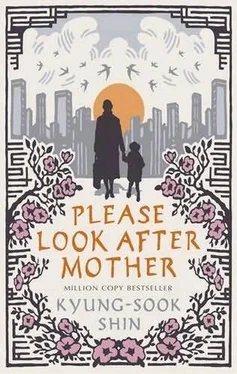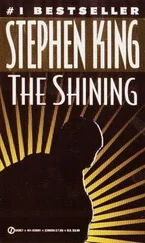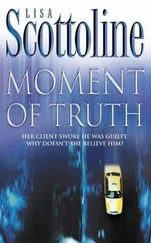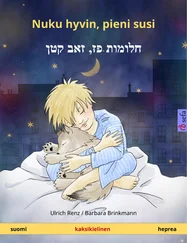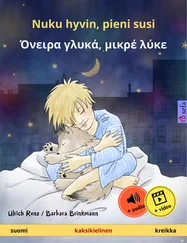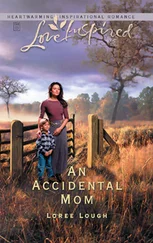Your wife, sniffling, insisted, “Even if I die, I’m going to go back into that house. Why should I leave that house when it’s my house, too?” You stood against the wall until the dawn light rippled into the bamboo forest. You grabbed your wife as she came out to make breakfast. She had cried all night, and her large, dark, guileless eyes were now so swollen they had become slits. You took your wife’s hand and pushed through the bamboo woods, back to your house. When you got past the bamboo forest, you let go of your wife’s hand and walked ahead of her. Dew dropped onto your pants. Your wife, falling back, followed you, breathing hard, saying, “Just go a little slower!”
When you got home, Kyun ran over to your wife, calling, “Sister-in-law!
“Sister-in-law,” he said, “I promise I won’t go to school. So don’t leave like that again!” Kyun’s eyes welled up; he had abandoned his dream. From that point on, Kyun, unable to go to middle school, threw himself into helping your wife and doing housework. When they worked in the hillside fields and Kyun couldn’t see your wife behind the tall millet stalks, he would call out, “Sister-in-law!” When your wife said, “Yes?” Kyun would smile and call out again, “Sister-in-law!” Kyun would call and your wife would answer, and Kyun would call her again and she would answer him again. The two would finish up the work in the hills like that, calling and answering. Kyun was a faithful companion for your wife whenever you wandered from home. When Kyun got stronger, he plowed the fields with the cow in the spring, and harvested rice in the paddies in the fall, before anyone else. In the late fall, he went to the cabbage garden in the early morning and harvested all the cabbage. Back in those days, people hulled rice over straw mats on the paddies. Each woman would set up a brusher, a contraption of metal teeth in a four-legged wooden frame, and pull the stalks through, forcing the rice kernels off. All the village women owned such brushers, and they would go to the fields of the family who was harvesting that day and set these up. And they would thresh the grain until sunset. One year, Kyun, who had grown almost ten centimeters over the previous year, went to work at the brewery in town. With his first paycheck he bought a brusher, and brought it home to give to your wife.
“What’s this brusher for?” your wife asked.
Kyun smiled. “Your brusher is the oldest in the village-it doesn’t look like it can even stand on its own.”
Your wife had told you that her brusher was so old that it took more effort for her than the other women to skim the grains, and had said she wanted a new one. Her words had gone in one ear and out the other. You thought, Her brusher is fine, what’s the point of buying a new one? Holding the new brusher that Kyun had bought, your wife grew angry at Kyun, or maybe it was at you. “Why did you buy something like this, when we couldn’t even send you to school?”
Kyun said, “It’s nothing,” and his face turned red.
Kyun got along well with your wife, perhaps thinking of her as his mother. After he bought the brusher, he brought home various things for the house whenever he had the money. They were all things that your wife needed. Kyun was the one who bought her a nickel basin. He explained, a bit embarrassed, “This is what the other women use, and my sister-in-law is the only one who uses a heavy rubber bin…” Your wife made various kinds of kimchi in the nickel basin and used it to carry lunch to the fields. After she used it, she would polish it and put it up on top of the cupboards. She used it until the nickel wore off and the basin turned white.
· · ·
You get up abruptly and go into the kitchen. You open the back door of the kitchen and look up at the shelf made of poles in the all-purpose room. Squat tables, their legs folded, are stacked on top. At the end sits the decades-old nickel basin.
You weren’t home when your wife gave birth to your second son. Kyun was there with her. You heard what happened later. It was winter, and cold, but there was no firewood. For your wife, who was lying in a cold room after having given birth, Kyun chopped down the old apricot tree in the yard. He pushed the logs into the furnace under your wife’s room and lit them. Your sister burst into your wife’s room and scolded her, asking how she could do such a thing, since people say that family members will start dropping dead if you chop down a family’s tree. Kyun yelled, “I did it! Why are you accusing her?” Your sister grabbed Kyun by the throat. “Did she tell you to chop it down? You bastard! You awful boy!” But Kyun refused to back down. His large, dark eyes glittered in his pale face. “Then do you want her to freeze to death in a cold room?” he asked. “Freeze to death after having a baby?”
Soon after that, Kyun left home to earn money. He was gone for four years. When he returned, penniless, your wife welcomed him back warmly. But Kyun had changed quite a bit while he was away. Though he had become a strapping young man, his eyes were no longer animated, and he appeared gloomy. When your wife asked him what he had done, and where he had gone, he wouldn’t answer. He didn’t even smile at her. You just thought the outside world had been unkind to him.
It was the spot where the apricot tree had stood. Maybe twenty days had passed since Kyun returned home. Your wife ran up to the store in town, where you were playing a game of yut, her face ashen. She insisted that there was something wrong with Kyun, that you had to come home right away, but you were immersed in your game and told her to go ahead. Your wife stood there for a moment, stunned, then flipped over the straw mat on which the yut game was set out. “He’s dying!” she screamed. “He’s dying! You have to come!”
Your wife was acting so strangely that you started for your house, a knot in your stomach.
“Hurry! Hurry!” your wife shouted, leading the way. It was the first time she had gone ahead of you, running. Kyun was lying on the spot where the apricot tree had stood. He was writhing, frothing at the mouth, and his tongue was hanging out.
“What’s wrong with him?” You looked at your wife, but she was already overcome with grief.
It was your wife, who had found Kyun in that condition, who was called to the police station several times. Before they determined the cause of death, a rumor that she’d poisoned her brother-in-law with pesticide spread to the neighboring village. Your sister screamed at your wife, her eyes reddened, “You killed my baby brother!”
Your wife was calm as she was being questioned by the detectives. “If you think I killed him, then just put me away.”
Once, the detective had to bring your wife home; she’d refused to leave the station, asking to be locked up in jail. Your wife would rip out her hair and grab at her chest in grief. She would bang open the door and run to the well and gulp down cold water. Meanwhile, you ran around in the hills and in the fields, crazed, calling the dead boy’s name: Kyun! Kyun! The burning in your chest spread and you couldn’t stand the heat in your body. Kyun! There was a time when the dead didn’t speak and the ones left behind went crazy like that.
Now you realize how cowardly you were. You lived your entire life heaping all of your pain onto your wife. Kyun was your brother, yet your wife was the one who needed to be consoled. But because you refused to speak about it, you’d driven her into a corner.
Even though she was out of her mind with grief, it was your wife who managed to hire someone to bury Kyun. Years passed, but you never asked for the details.
“Don’t you want to know where he’s buried?” she would sometimes ask.
Читать дальше
